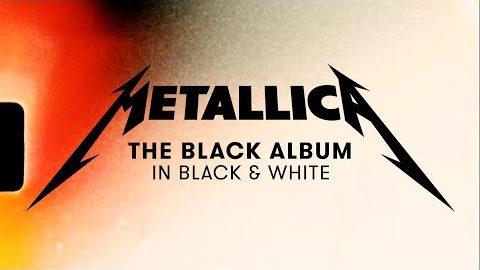
It’s a blazing hot Tuesday lunchtime, and at Manchester’s 2500-capacity Academy 1 venue, something is happening that hasn’t been possible in months. The large metal doors are open and hundreds of people in hi-vis and black polo shirts are loading heavy black flight cases out of the venue.
Live music in Britain has been on hiatus since March, and the future has grown more – not less – certain for the 10s of thousands of people who are employed in the sector. Trade body the Professional Lighting and Sound Association has formed #WeMakeEvents, an initiative aimed at highlighting the fact that (often self-employed) events professionals are falling through the cracks of the Government’s financial aid schemes. The industry faces the loss of 114,000 jobs if the furlough and self-employment schemes aren’t extended until a safe return to work is possible (the schemes are set to end in October).
And today’s [August 10] #WeMakeEvents march represents the first serious attempt to fight back and highlight the plights of crew workers, engineers and venue staff who have been placed in an impossible position.
“People in the sector are looking elsewhere,” explains Sacha Lord, the Parklife and Warehouse Project founder who has joined the protest in his capacity as Greater Manchester’s Night Time Economy Advisor, “I don’t blame them. It’s fine saving the bricks and mortar, but if the Government don’t go [a step further] then we won’t be able to re-open.”
Hundreds of flight cases are being pushed down Oxford Road, the heart of Manchester’s university area, while more than a thousand artists, venue staff and music fans are swelling behind them waving red flags, holding placards and showing solidarity. Manchester is under increased lockdown measures, and while the pandemic remains an urgent priority in the city, organisers are insistent that the necessary protest presents no risk.
Everyone signs an NHS Track & Trace form, social distancing is observed and I see only a small handful of people without masks. As well as the #WeMakeEvents slogan, many of the signs are emblazoned with ‘FIRST TO CLOSE, LAST TO OPEN’, highlighting the unique predicament that Britain’s venues have been placed in.
And though this is a silent protest, there’s good humour amongst the crew staff, many of whom haven’t seen their friends and colleagues in months. These people were looking forward to busy festival seasons and packed summer schedules; instead they’ve been stuck in their houses watching their incomes disappear.
Dan Woolfie, tour manager for Blossoms, is one of them. “I was lucky enough to get on the self-employment scheme” he explains, “but a lot of crew haven’t qualified for that, a lot of us are on absolutely nothing. What happens from this point? Suppliers are struggling, they’ve got no flight cases going out of the door, all of the crew are off the road. It’s getting desperate.”
Woolfie fears an exodus of skills from the music industry if people have to take other work – unless the Government acts fast: “Everyone excluded from support needs support. The self-employment grants need to be extended until it’s safe for us to go back to work, we need more grants for companies and suppliers, and those furloughed need an extension. It’s not safe for us to go back to work; everything needs to be extended until then.”
This is something that many protestors point out today; government support simply isn’t hitting everyone it needs to, and Manchester is already paying the price.
Last month, beloved small venues Deaf Institute and Gorilla were narrowly saved after their previous owners announced plans to dispense with the venues. The eclectic Northern Quarter venue Band on the Wall has announced it will shut for at least one year and legendary indie-punk pub the Star and Garter has warned it may now have to close after failing in its application for Government funding. Meanwhile there’s real worry that the more DIY and forward-thinking venues at the city’s cutting edge –take the Peer Hat or Salford’s infamous the White Hotel – may fall through the cracks.
The live music sector in Britain is best understood as a chain; if one link falls, there’s a knock-on effect at the highest levels. If skilled crew staff have to leave the industry, this will affect the biggest of productions at places such as the Arena or Old Trafford stadium – events that bring huge financial benefits to the city. When there’s a big show in town, it’s local bars, pubs, hotels and taxi drivers who reap the benefits.

In short: Manchester has built itself as a cultural hub for the north-west; what happens if you take that away?
Sacha Lord is concerned that the Government’s £1.57bn support package will only reach what he terms “the crown jewels”, Britain’s legacy institutions such as the Tate or the National Theatre: “Places like Night & Day Café are, for me, far more important. When it comes to re-opening, if the foundations aren’t in place because these people haven’t been given Government support, then you aren’t going to be able to open them.”
While London’s Night Czar Amy Lamé has faced criticism for her work during the crisis, thing have been done very differently in Manchester. Lord, alongside Mayor Andy Burnham, raised over half a million pounds for the city’s nightlife via the popular United We Stream DJ service. “I was really looking forward to giving that money out,” explains Lord, “but you see the applications coming in and it’s heartbreaking [because you can’t help everyone].”
Many of those employed in the live music sector also contribute creatively to the city. Erin Caine, of Manchester’s fast-rising post-punks Loose Articles, says that her band met working in different capacities in the night-time economy.
“Our singer Natalie works at Deaf Institute, which was facing closure,” she explains, “so it’s just been a stress. Our headline show was pushed back from May to September, then to December. It’s hard. I’m here to show solidarity and how much we support these venues.”

The mental health implications, too, are stark, a fact that many of the marchers bring up in conversation. Rates of mental health issues are high in music (last year Help Musicians UK conducted a survey of 2,000 musicians that found 71 per cent experience anxiety and 68.5 per cent depression). On top of this, nobody knows if or when their lives and the careers that they love will return to normal.
Sound engineer Chris Stockton isn’t optimistic. “It’s all gone,” he says. “I was eligible for a grant but because of the Government’s lazy-arse calculation, on average I got absolutely nothing. I’ve been looking for jobs in other sectors, but unfortunately so are about 80,000 other people.” Yet, he says, “I’m quite stubborn. Why should I go and work in Tesco when I’ve invested 10 years in one profession?”
There is also a sense of frustration that Manchester’s indie establishment haven’t offered more support or been more visible today. One crew member, who is leading the protest carrying a flight case and wishes to remain anonymous, tells me: “I’m very disappointed that none of the big name Manchester artists have turned up, or supported us. We all work for them. We’re their crews – they need us when they’re out gigging, so a bit of solidarity [wouldn’t go amiss].”
As the flight cases load up outside Manchester Central Library and the protest reaches its destination, all around are the reminders of the businesses – venues, bars and restaurants – that bring meaning to people’s lives and will be affected if the live music sector is allowed to collapse.
#WeMakeEvents is about highly skilled professional people who just want to return to work when it’s safe. The city is listening, but is the Government?
The post “We might not re-open”: on the scene at Manchester’s #WeMakeEvents march appeared first on NME Music News, Reviews, Videos, Galleries, Tickets and Blogs | NME.COM.








